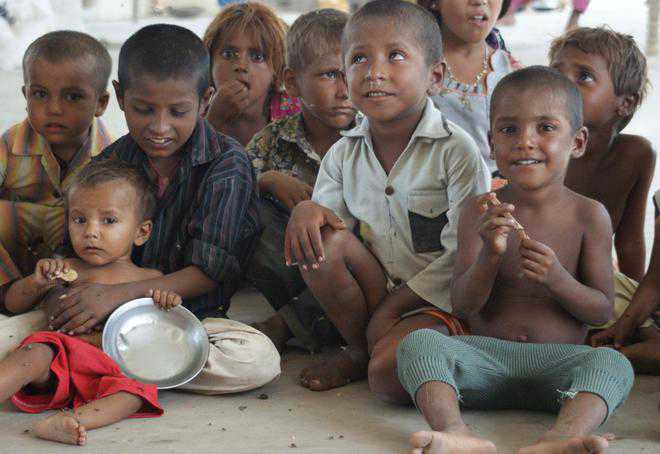
Aditi Tandon
Tribune News Service
New Delhi, January 5
India may be the top consumer of antibiotics in the world but it is losing a large number of lives annually due to lack of antibiotic access to treat preventable diseases such as pneumonia.
A new study in the Lancet’s special series on Antimicrobial Resistance shows that only 12.5 per cent of India’s under-five children with suspected pneumonia are actually getting treatment for the same, resulting in 2,10,000 deaths every year.
The Lancet article titled, “Access to effective antimicrobials: A worldwide challenge” goes on to conclude on the basis of research that India can avert 80.7 per cent of its annual under 5 pneumonia attributable deaths by universalizing access to antibiotics.
“India with low reported percentage of children with suspected pneumonia receiving antibiotic treatment (just 12.5 pc) can reduce the number of present community acquired bacterial pneumonia deaths by 80.7 per cent to 40,691 annually instead of the current 0.210 million. This means it can avert 1,69,760 deaths every year by ensuring children suffering pneumonia get medicines,” says Prof Ramanan Laxminarayan, lead author of the paper.
The authors argue that even today lack of access to antibiotics is killing more people worldwide than antibiotic resistance is. They studied antibiotic use and diseases patterns in 101 countries and concluded that worldwide universal antibiotic access can avert 0.445 million deaths out of the estimated 0.590 million community acquired pneumonia deaths annually. This represents a reduction of 75 pc child mortality globally.
“The point we are making is – for human health lack of access to essential and lifesaving medicines is as important as the issue of antibiotic resistance. Talking of the challenge of antibiotic resistance in isolation won’t help when even today we have large sections of people without access to medicines,” Laxminarayan says.
The study also shows India leading the global burden of neonatal sepsis deaths attributed to antibiotic resistant pathogens thereby flagging the attention of policymakers to the need for a national action plan on antibiotics which ensures their effective use while preventing their abuse.
Annually, 214500 neonatal sepsis deaths are attributable to resistant bacteria in the five high burden countries – India, Pakistan, Nigeria, Congo and China. Of these deaths, 56, 500 are annually reported from India.
Director General of ICMR Dr Soumya Swaminathan agrees to the challenge of lack of antibiotic access in India saying, “Most of the children in underserved area are unable to get pneumonia antibiotics due to prescription problems. We need to experiment with new models of prescription where we don’t have enough doctors to write medicines.”
Between 2000 and 2010, worldwide consumption of antibiotics rose by 36 per cent. Three fourths of this rose in BRICS countries alone with 23 per cent increase in retail sales of antibiotics in the BRICS nations being attributed to India.
The World Health Assembly has endorsed a Global Resolution on Antimicrobial Resistance. The resolution mandates all member nations to put in place national action plans to combat the antibiotic challenge within two years.
12.5%: Children with suspected pneumonia are actually treated annually
2,10,000: Under-5 children die of inadequate treatment every year
1,69,760: Deaths can be averted by ensuring that children get medicines



























